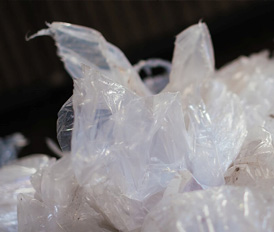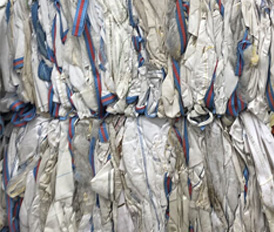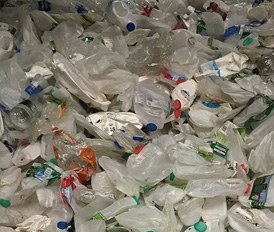€7 Billion Investment Into Chemical Recycling: Worthwhile or Money Wasted?
by George Kiernan
Pakire Polymers News
Is Chemical Recycling a Sustainable Solution?
Investments in chemical recycling have surged, igniting debates on whether this is a practical solution or a wasteful endeavour. This recycling approach is championed by some as a potential answer to the escalating problem of plastic waste. However, detractors caution that these techniques are largely unproven and extremely costly.
Arcus Greencycling, a German company, runs one of the country’s most advanced large-scale pyrolysis plants. The facility processes aluminium plastic into oil, later repurposed as plastic by the BASF Group. Markus Klatte, a key figure at Arcus, maintains, “We can help where conventional recycling cannot. Recycling rates are poor. We want to help with that. We need chemical recycling.”
The EU’s Green Deal
Recycling is central to the EU’s Green Deal, as it aims to establish a circular economy where plastic waste is reused to manufacture new plastic, thereby “closing the loop.” This objective was set forth by Commission Vice-President Frans Timmermans in 2015 when presenting the Circular Economy Action Plan.
Yet, the EU’s aspirations have yet to materialise fully. Though efficient recycling processes exist for materials like scrap metal and glass, plastic presents a formidable challenge due to its complexity and diversity. Multi-layer packaging, increasingly used by plastic producers, poses additional difficulties for traditional recyclers. Consequently, about 60% of Europe’s plastic packaging waste is not recycled and often ends up in incineration plants.
Future Prospects of Chemical Recycling
Chemical companies, such as BASF, maintain that they can resolve these challenges. Industrial groups including The European Chemical Industry Council and Plastics Europe endorse the technology. “We can close the loop,” a lobbyist stated to the EU Commission in 2019.
Zero Waste Europe, an NGO monitoring corporate influence over EU institutions, asserts that chemical recycling is not a novel concept and has been endorsed by the industry for decades. Earlier in the 2000s, BASF operated a pyrolysis plant that converted waste plastic into oil, but these facilities fell out of favour as they couldn’t compete with cheap, easily available crude oil. The EU’s circular economy plans have rejuvenated interest in chemical recycling.
The chemical industry, in subsequent meetings, demonstrated its support for “ambitious circularity,” assuring the Commission of the technology’s ability to complement existing recycling methods. It also unveiled plans for substantial future investments. A total of €7.2 billion is expected to be invested in chemical recycling by 2030, aiming to generate 3.4 million tonnes of recycled plastic. Although only a handful of such facilities currently operate in Europe, forthcoming plans for new sites in Germany, Poland, and the UK indicate escalating interest.
Is Chemical Recycling Economically Viable?
Present-day mechanical recyclers confront challenges not only with multi-layer packaging but also with heavily contaminated plastic waste. The EU’s Joint Research Centre (JRC) indicates current waste management systems across EU nations cannot effectively deal with all the types of plastic waste being produced, with only 38% of plastic packaging recycled the previous year.
Policy makers should be legislating more proactively to require manufacturers to design and create products with maximum recyclability in mind; for example, creating regulations to avoid multi-layer packaging and the combining of different polymer types. This would greatly empower the mechanical recyclers to be better able to deal with Europe’s plastic waste and increase the circularity of material use within the European Economy.
However, as well as instances of when multi-layered packaging is unavoidable, this would still leave the issue of contaminated plastic waste streams unaddressed. This is where the advanced technologies of chemical recycling will be needed, as regulations can only go so far. As the technologies underlying chemical recycling continue to improve over time, the amount of plastic kept out of landfill and incineration and in use within the economy will exponentially increase.
Despite the promises, industry experts remain sceptical about chemical recycling as a panacea. Julia Vogel, from Germany’s Federal Environment Agency (UBA), echoes these concerns: “Competition with existing recycling technologies should be avoided. Many questions remain unanswered.” Janek Vähk from Zero Waste Europe concurs, stating, “It is entirely unclear how sustainable pyrolysis really is.”
During pyrolysis, approximately 30-40% of the input material is eventually recycled back into plastic. Material losses range between 5-10%, while the remaining materials are typically used by chemical companies to produce fuel. If the EU sanctions the free allocation scheme, almost all outputs, not just the recycled plastic, could be classified as recycled material. Nonetheless, without the Commission’s endorsement, companies may hesitate to embrace chemical recycling as it is currently not an economically viable practice. The JRC study predicts that chemical recycling based on pyrolysis will only break even by 2033, contingent upon favourable conditions and technological advancements.
The Future of Chemical Recycling
With the EU eager to meet its circular economy targets and impending regulations likely to mandate that all food packaging contains at least 10% of recycled plastics by 2030, facilities like that of Arcus Greencycling in Germany may proliferate across Europe. Yet, their effectiveness remains to be confirmed. Currently, the feasibility and sustainability of chemical recycling is a hotly contested subject within industry circles, and this discourse will likely continue in the years ahead.
Pakire Polymers
At Pakire Polymers, we support decision making that reduces the amount of plastic ending up in landfill or incineration. Chemical and mechanical recycling do not need to be looked at as competing solutions, but rather as complementary ones. EU legislators should be creating regulations that require manufacturers to make products with recyclability in mind, to make mechanical recycling a more powerful means of waste management. But where this is unavoidable, and in instances of contaminated plastic waste, chemical recycling could, and should, be utilised.
This technology should be receiving all the support it needs to fully mature into a viable waste management practice in the interests of keeping materials in use within the economy, conserving natural resources, reducing carbon emissions, and combatting climate change. A fully circular economy with net zero waste is, after all, the end goal, and we must be pragmatic if we hope to achieve it.
Share article on your social media
More related articles
Work with Us
If you have a passion for recycling and for achieving a sustainable future, then we want to hear from you.





